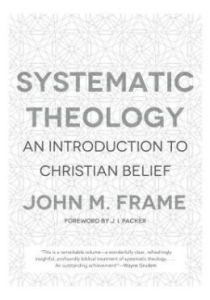
My most gracious Beloved,
I am now going from a prison to a palace: I have finished my work, and am now going to receive my wages. I am going to heaven, where are two of my children, and leaving you on earth, where there are three of my babes. These two above, need not my care; but the three below need thine. It comforts me to think, two of my children are in the bosom of Abraham, and three of them will be in the arms and care of such a tender and godly mother. I know you are a woman of sorrowful spirit, yet be comforted, though you sorrows be great for you husband going out of the world, yet your pains shall be the less in bringing your child into the world; you shall be a joyful mother, though you be a sad widow; God hath many mercies in store for you; the prayer of a dying husband for you, will not be lost. To my shame I speak it, I never prayed for you at liberty, as I have done in prison. I can write much, but I have few practical counsels to leave with you, viz.,
1. Keep under a sound, orthodox, soul searching ministry. Oh! There are many deceivers gone out into the world, but Christ’s sheep know His voice, and a stranger they will not follow. Attend any minister that teacheth the way of God in truth; and follow Solomon’s advice, Proverbs 19:27.
2. Bring up your children in the knowledge and admonition of the Lord. The mother ought to be a teacher in the father’s absence, Proverbs 31:1, “The words that his mother taught him…” And Timothy was instructed by his grandmother, 1 Timothy 1:5.
3. Pray in your family daily, that yours may be in the number of the families who call upon God.
4. Labor for a meek and quiet spirit, which in the sight of God, is of great price, 1 Peter 3:4.
5. Pour not on the comforts you want, but upon the mercies you have. Look rather at God’s ending in afflicting, than to the measure and degree of your affliction.
6. Labor to clear up your evidence for heaven when God takes from you the comfort of earth, so that as your sufferings do abound, your consolation in Christ may abound much more, 2 Corinthians 1:5. Though it be good to maintain a holy jealously of heart, yet it is still ill of you to cherish fears and doubts touching the truth of your graces. If ever I had confidence touching the grace of another, I have confidence of grace in you; as Peter said of Silvanus, I am persuaded that this is the grace of God wherein ye stand, 1 Peter 5:12.
7. O, my dear soul wherefore dost thou doubt, who heart has been laid upright, whose walking has been holy, &c. I could venture my soul this day in they soul’s stead, such a confidence I have in you.
8. When you find your heart secure, presumptuous and proud, then pour upon corruption more than grace: then look upon your grace without infirmities.
9. Study the covenant of grace, and merits of Christ, and be troubled if you can; you are interested in such a covenant that accepts purposes for performances, desires for deeds, sincerity for perfection, the righteousness of another, viz., that of Jesus Christ, as it were your own alone. Oh! My love! Rest thou in the love of God, the bosom of Christ.
10. Swallow up your will in the will of God. It is a bitter cup we are to drink, but it is the cup of our Father which has been put into our hands. When Paul was to suffer at Jerusalem, the Christians said, “The will of the Lord be done!” Oh! Say ye so, when I go to the Tower-Hill, “The will of the Lord be done!”
11. Rejoice in my joy. To mourn for me inordinately argues, that you either envy or suspect my happiness. The joy of the Lord is my strength; Oh! Let it be yours also! Dear wife, farewell: I will call thee wife no more: I shall see thy face no more: yet I am not much troubled, for now I am going to meet the Bridegroom, the Lord Jesus, to whom I shall be eternally married.
12. Refuse not to marry, when God offers you a fair opportunity; but be sure you marry in the Lord; and one of a good disposition, that he may not grieve you, but give you a comfortable livelihood in the world.
Farewell dear love, and again I say farewell. The Lord Jesus be with your spirit, the Maker of heaven and earth be a husband to you; and the Father of the Lord Jesus Christ be a father to your children – so prays your dying,
Your most affectionate friend till death,
Christopher love
The day of my glorification.
From the Tower of London, August 22, 1651
Source: www.sounddoctrine.net
Read Full Post »



